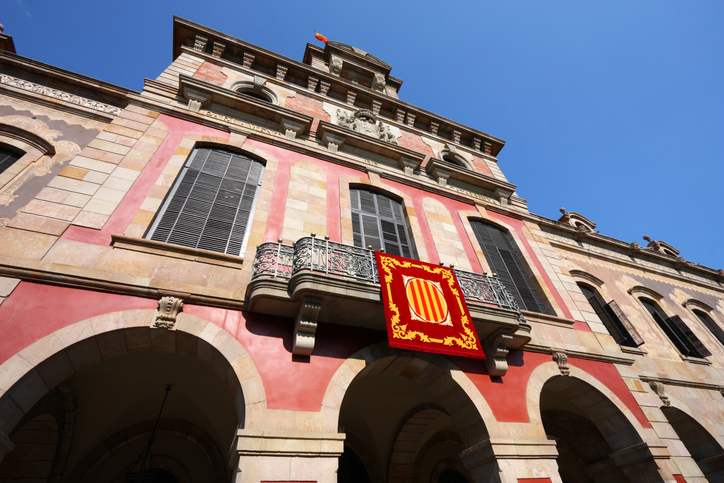

The annual meeting of the directors of the Cervantes Institute was held last month in Barcelona’s iconic Saló de Cent. Although the focus was on the effects of AI on Spanish language, the issue of Spain’s regional languages was ever present. This is the first time that the annual meeting of Spain’s public body in charge of the dissemination and promotion of Spanish has been held in Cataluña, where there is considerable antipathy toward the use of Spanish.
The meeting included sessions on multilingualism within Spain—one session was moderated by Carmen Pastor, academic director of the Cervantes Institute, who stressed that “60% of the inhabitants of the state live in bilingual territories” along with “the institution’s commitment to teaching the rest of Spain’s official languages around the world.”
Llorenç Comajoan from the Universidad de Vic underlined the current emergency situation in which the Catalan language finds itself—”despite acceptable levels of competence in Cataluña, social use has decreased a lot in the last ten years.” Miren Dobaran (deputy minister of language policy for the Basque government) highlighted “the progress made by Basque in the last 30 years, which has gone from being a language of the old to being the language of choice among young people.” And Ana María Iglesias Álvarez (Universidad de Vigo) outlined the predicament of Gallego, “a language in regression, rooted in rural environments and used by the elderly, as a result of a very weak dissemination policy.”
The Instituto Cervantes offers more than 145 Catalan courses around the world, with growing demand in places like Germany and Austria. Catalan course offerings have increased by 234% in Cervantes Institutes since 2019.
Other roundtables and conferences revolved around multilingualism, co-official languages, European cultural institutes, the presentation of the Cervantine Cities Network, and the dissemination of Hispanic culture knowledge worldwide.
The directors confirmed their commitment to continue working on the profound technological transformation in which the institution is immersed and to continue expanding to promote Spanish throughout the world through different models of presence.





